Naturopathy Treatment for Infertility Treatment
- Mississauga, ON
- »
- Naturopathic Treatment
- »
- Infertility Treatment, Naturopathic Fertility Clinic
- Women’s Health and Wellness
- Men’s Health and Wellness
- Mental Health Treatment
- Integumentary System, Skin Diseases
- Endocrine Conditions
- Cardiovascular Conditions Treatment
- Autoimmune Disorders, Immune System Conditions
- Respiratory System Conditions
- Rheumatic, Musculoskeletal Diseases
- Gastrointestinal Conditions
- Neurological Conditions, Pain Management
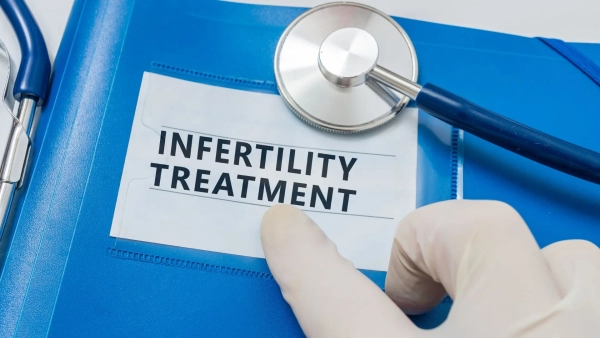
Naturopathy Doctors for Infertility Treatment Clinic
Etobicoke Naturopath Osteopath Clinic offers natural infertility treatments that may be more effective than traditional treatments. Naturopathy Treatment is a holistic approach to health that focuses on treating the whole person, rather than just the symptoms of infertility. With its natural remedies and personalized care, naturopathic medicine may be an effective treatment option for those struggling with infertility. There are many different causes of infertility, and the appropriate treatment will depend on the underlying cause.
There are a variety of different therapies that can be used to treat infertility, including medications, supplements, fertility acupuncture, and natural techniques. There are many treatments available, including traditional medical treatments and fertility treatments such as in vitro fertilization (IVF). Some people choose to try natural methods of fertility treatment, such as naturopathic doctor treatments. A naturopath may be able to help you fix a hormonal imbalance that is causing your infertility. As an additional option, they may give natural supplements or treatments that might help you conceive. Naturopathic physicians may aid in the improvement of fertility. Naturopathic doctors have been using complementary therapies, such as herbal remedies and fertility acupuncture, to help people conceive for centuries. NDs have a strong emphasis on natural medicine, which can help treat many common causes of infertility.
They also have experience treating other health conditions that can lead to infertility, such as endometriosis or PCOS. While the results may vary from person to person, many people find that naturopathic care is more effective than traditional treatments and can be less invasive. By addressing the underlying causes of infertility, naturopathic doctors may be able to help improve the chances of conception.
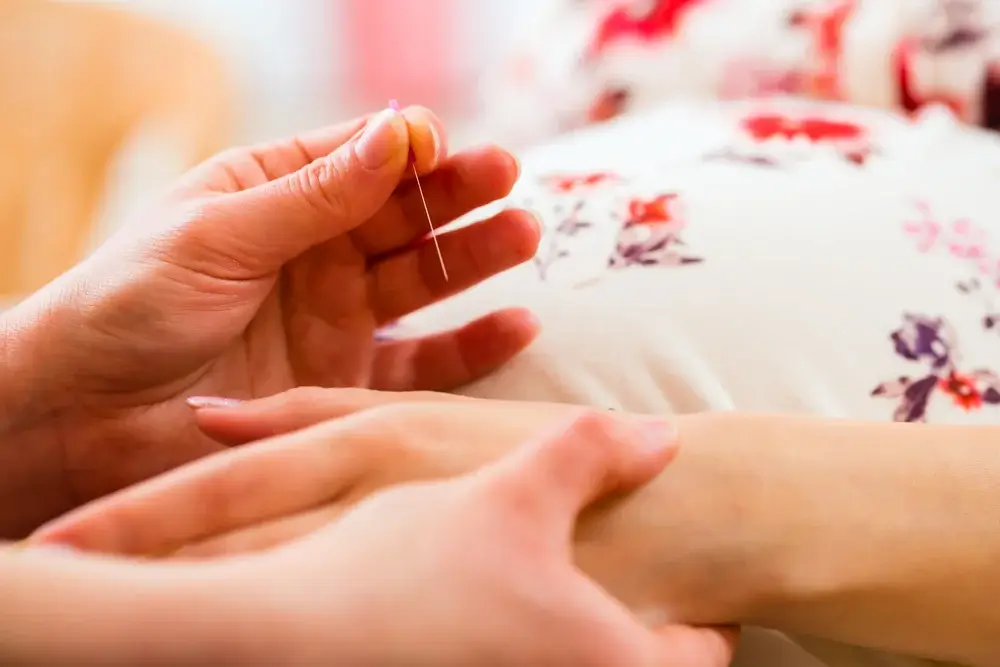
Fertility Clinic – Evidence Based Approaches to Integrative Infertility Treatments
Infertility is a relatively common problem, affecting around 15% of couples. It can be caused by a number of different factors, including problems with the male or female reproductive system, such as infertility caused by low sperm count or problems with ovulation. There are various treatments available, and in many cases it is possible to achieve a successful pregnancy. Infertility can be a deeply personal experience, one that can cause tremendous stress and frustration. For some couples, infertility is the ultimate barrier to achieving their dreams of having a family. For others, infertility may simply be another hurdle on the road to parenthood. Whatever the case may be, infertility can be an incredibly complex and challenging condition to deal with.
Low Ovarian Reserve: Low Egg Quality
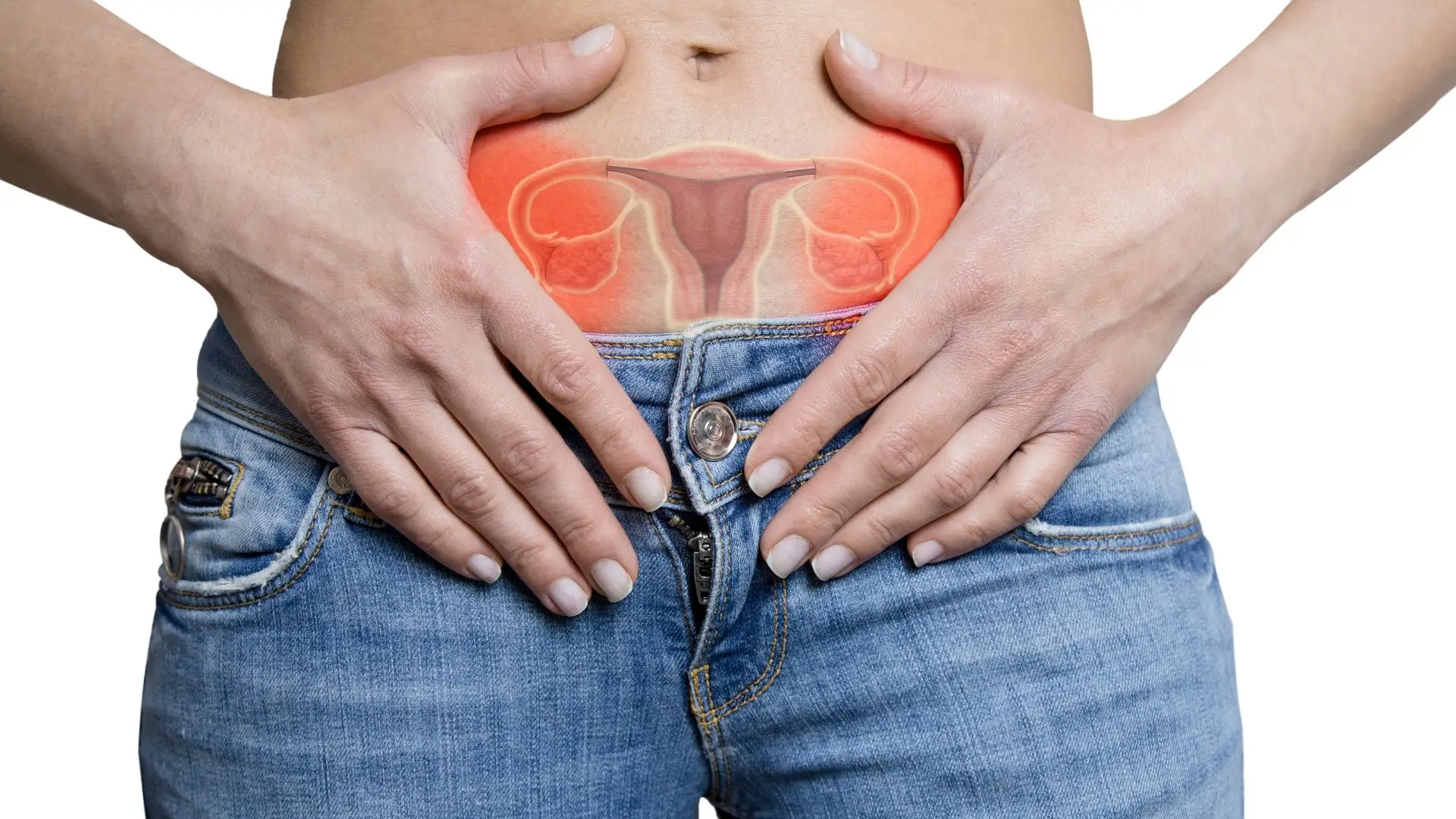
- One of these crucial nutrients is coenzyme Q10, which, when administered in therapeutic doses, has been found to increase egg cell wall integrity and lower the incidence of chromosomal abnormalities during in vitro fertilisation.
- Increased levels of AMH and healthy egg quality are two of the many benefits of adequate vitamin D levels.
- It has been shown that folic acid intake before to conception may improve follicle quality and protect against neural tube abnormalities in the developing baby.
- Women with poor egg quality also may benefit from a plethora of individualised regimens based on scientific research that have been found to greatly increase success rates during IVF, ICSI, IUI, and natural conception cycles.
If you’re having trouble conceiving, you may want to see a naturopathic doctor for advice on what to do that’s both effective and safe.
Sperm-Factor Infertility
- Asthenozoospermia is identified when there is a significant decrease in the proportion of sperm cells that display normal, forward-moving motility.
- Sperm concentration is an estimate of how many sperm cells are present in one millilitre of ejaculate. Oligozoospermia is characterised by an abnormally low number of sperm.
- Third, normal sperm morphology checks to see how many sperm cells seem normal (no double heads, right-sized cells, properly joined tails, and so on). Teratozoospermia is a condition in which sperm have abnormally poor shape.
- Tests for sperm viability, which determines whether fraction of sperm cells are viable, are among the most critical. Males may have what seems to be a large number of viable sperm cells in rare circumstances when none really exist. Necrospermia has been identified as the underlying condition.
- Acupuncture for fertility has been demonstrated to increase sperm concentration, normalise hormone levels, and enhance general wellness.
- Counselling on diet and lifestyle has been demonstrated to have a major effect on male fertility. This delves further into the data, discussing foods that are often believed to be healthy but may fact be hazardous, as well as discussing recommended dietary and lifestyle choices.
- Clinical nutrition: aids in providing the required nutrients in high therapeutic dosages to promote sperm concentration, testosterone production, sperm motility, and proper sperm morphology.
Polycystic Ovarian Syndrome (PCOS)
Polycystic Ovarian Syndrome (PCOS) is a common hormonal disorder that affects many women, often resulting in infertility, weight gain, hirsutism, acne, irregular menstrual cycles, increased production of androgens, and the presence of cysts on the ovaries. Naturopathic doctors are trained healthcare professionals who use natural treatments to help support the body’s healing processes.
- Acupuncture for Fertility has been shown in scientific studies to increase the chance of ovulation each cycle, boost progesterone production, increase blood flow to the uterus and ovaries, and promote a safe implantation and pregnancy.
- Botanical Remedies: Herbal treatments can be tailored to the needs of patients with polycystic ovary syndrome (PCOS) by including herbs that suppress testosterone production in the ovaries, increase progesterone production, stimulate ovulation, alleviate stress, anxiety, and depression, and promote a healthy pregnancy.
- Intravenous (IV) nutrient therapy may aid in providing therapies that improve the body’s antioxidant activity and foster optimum egg health.
- Nutritional supplements, in particular those that raise insulin sensitivity and so regulate ovulation rates and decrease testosterone production and those that promote energy (ATP) generation in the follicles (eggs) and thus improve their health and quality.
- A bioidentical hormone replacement therapy that includes progesterone in the form of a cream or suppository, is beneficial in lowering the chance of miscarriage, particularly in the first trimester.
- Diet and lifestyle counselling: tried and true tips for maintaining a healthy weight, and losing weight in particular, to enhance the hormonal profile, boost egg quality, and decrease hormonal imbalances related to polycystic ovary syndrome (PCOS).
If PCOS is treated, it will resolve underlying problems that have been contributing to infertility. To begin with, it has been shown to boost the frequency of ovulation that occurs on its own, naturally. In addition, it promotes normal progesterone production, which is essential for implantation and pregnancy maintenance. Egg quality and health tend to be worse in women with PCOS, however therapy with antioxidants and micronutrients may help to enhance both. Greater chances of fertilisation and implantation result from using eggs of higher quality. Additionally, treatments may help reduce androgen/circulating testosterone levels (elevated androgen hormones have been implicated in increasing miscarriage risk in PCOS). Maintaining a healthy weight throughout pregnancy is possible with better blood sugar management and insulin sensitivity.
Endometriosis
Endometriosis is a chronic condition that affects many women during their reproductive years. Factors that may cause Endometriosis are:
- One of the main causes of endometriosis’s persistence is a hormonal imbalance in which oestrogen levels are elevated compared to progesterone levels, known as “oestrogen dominance.”
- It’s possible that low levels of vitamin D have a role, since this deficiency affects the liver’s COMT enzyme and hence its ability to metabolise oestrogen efficiently. The COMT enzyme helps the body by converting more oestrogen into safer forms.
- The endometrioma’s own production of inflammatory cytokines boosts inflammation in the surrounding tissue, which in turn fosters the development of the endometrioma.
- The immune system is thrown off kilter, making it unable to properly attack endometriosis tissue outside of the uterus, which leads to the fourth cause. A properly functioning immune system should seek out and destroy such tissues. However, endometriosis patients have immune system dysregulation, so their natural killer cells aren’t able to specifically attack the disease.
- Spread to Other Tissues, Endometrial cells may spread to other places through retrograde blood flow (menstrual flow moving in the opposite direction into the Fallopian tubes and into the abdominal cavity), the lymphatic system, or the circulatory system.

- Fertility Acupuncture: Acupuncture for endometriosis may assist with uterine blood flow, pain, hormonal balance, stress, and inflammation.
- Vitamin D injections are a rapid way to boost vitamin D levels, much more so than taking a pill. If a person’s blood test results reveal that they have a severe deficit of Vitamin D, this is a great resource to have.
- Altering one’s diet and way of life may have a profound effect on the symptoms of endometriosis and its treatment’s overall success. Optimal fertility, less oestrogen dominance, less hormonal imbalance, less discomfort, and maybe less inflammation in the reproductive organs and body can all be achieved by according to the diet and lifestyle advice made for this illness.
- Because oxidative stress and inflammation are often increased in endometriosis patients, IV therapy may assist to supply the antioxidants in high concentrations to maintain egg quality and decrease damage to the eggs from oxidative stress.
- Bioidentical progesterone therapy (BHRT) is a treatment option for endometriosis since it helps boost low progesterone levels, which can then promote a successful implantation and pregnancy.
Unexplained Infertility
- First, a thinning uterine lining is often disregarded as a problem by women who have tried in vitro fertilisation (IVF) or intrauterine insemination (IUI) before without difficulty (IUI). In addition, the thickness of the uterine lining is not routinely assessed by ultrasounds performed at the first diagnosis. To determine the thickness, a transvaginal ultrasound should be performed around the cycle’s midpoint (a few days after ovulation). Noticeably light periods are a frequent symptom of a thin lining. A light period is one that lasts less than 3-4 days and may indicate a thin uterine lining.
- The importance of male fertility cannot be overstated, and neither can the consequences of suboptimal sperm health. It is not true that a male spouse has no responsibility for the infertility only because he satisfies the “Minimum” standards. The sperm analysis does not highlight suboptimal levels, so you may not realise there is a problem even if it persists. A shorter time to conception may be possible if the quality of the sperm is increased to an ideal level. You may increase your sperm count to incredible heights without worrying about their viability.
- If your luteal phase lasts for 12 days or less, or if you have heavy bleeding during your luteal phase, you may have low progesterone. Because progesterone levels might shift by as much as five times in only a few of hours, blood tests are not as dependable as the aforementioned symptoms. Progesterone levels in the uterine lining and other reproductive organs are not reliably predicted by blood levels, which are subject to continual fluctuations.
- Patients with excessive follicle stimulating hormone (FSH), low anti-mullerian hormone (AMH), and low antral follicle count (AFC) have a low ovarian reserve, which leads to poor egg quality. Low egg quality is closely related to diminished ovarian reserve. A poor follicular integrity signifies a follicle that is less likely to fertilise, less likely to implant, and less likely to result in a healthy pregnancy.
- The stress hormone cortisol is increased when stress is strong and persists over time. As stress and cortisol levels rise, the body’s circulatory system reroutes blood to protect its most essential organs (brain, liver, skeletal muscle). Increased stress levels reduce the quality of the uterine lining, which in turn reduces the likelihood of implantation, according to the research.
Undiagnosed Infertility: Possible Treatments
- Improved blood flow to the uterus and ovaries is one of the main benefits of fertility acupuncture. Specific acupuncture treatments based on current clinical investigations have been demonstrated to boost egg quality, restore hormonal balance, lessen the effects of stress, and promote healthy ovulation and progesterone levels. Researchers found that it helped men have more healthy sperm and a higher concentration of those sperm.
- It is possible to boost the likelihood of becoming pregnant while treating unexplained infertility by addressing a number of underlying causes, including the use of clinical nutritional supplements. In particular, vitamin supplementation has the potential to enhance egg and follicle quality by protecting them from harm, and sperm health by promoting optimal motility and shape. Antioxidants in therapeutic doses protect sperm and egg cells from damage, which improves overall function.
- Hormone replacement treatment with bioidentical progesterone aids implantation, pregnancy, and maybe lowers the chance of miscarriage, particularly in the first trimester. Patients who have had low progesterone in the past or who are now experiencing low progesterone symptoms would benefit greatly from this therapy choice.
- IV Therapy (Glutathione): Intravenous administration of glutathione, the body’s primary antioxidant, may promote sperm and egg health. The oxidative stress, a hazardous sort of chemical stress that severely lowers egg and sperm health, is mitigated by the antioxidant, protecting the eggs and follicles from possible injury. Therapeutic concentrations cannot be attained with supplementation or food alone, but this may be remedied by combining intravenous vitamin C with other essential nutrients.
- Your food and lifestyle: what’s generally deemed healthy does not always translate into excellent modifications for fertility particularly. Treatment for unexplained infertility should include advice on a diet and lifestyle that promotes the health of sperm and female fertility. Fertility is no different from other areas of medicine in that sometimes the simplest remedies may have the greatest impact on patient outcomes.
Miscarriages
A recurring loss of a pregnancy is one of the most distressing medical conditions a person may endure. Many women can’t face the frustration and grief of a loss. Supportive care for the treatment of recurrent miscarriages, including optimising the reproductive microbiome and acupuncture for infertility to increase the success rate of assisted reproductive technologies.

Risk Factors for Miscarriage
- An abnormally thin uterine lining might prevent implantation from taking place. And early in pregnancy, a thin uterine lining might raise the likelihood of a miscarriage. Early clinical experiments have revealed that the usage of certain nutrients and supplements may promote a healthier and thicker uterine lining. In addition, acupuncture for fertility has been demonstrated to increase implantation success rates by enhancing blood flow to the reproductive organs.
- Sperm DNA fragmentation is often misdiagnosed when it is abnormally high. Because many physicians wait until there is a strong family history of miscarriages before ordering this test, and even then it is occasionally overlooked. Fragmentation of the DNA in sperm samples may be easily and cheaply tested (hairline fractures in the DNA). The good news about DNA fragmentation is that it can typically be treated simply by making certain modifications to one’s diet and way of life and by taking some high-dose antioxidants.
- Progesterone is essential for maintaining a healthy pregnancy, and low levels may be dangerous. If levels are insufficient or inadequate, the risk of miscarriage and premature bleeding rises. The progesterone aids in maintaining a healthy blood supply to the uterine lining (where the embryo implanted).
- Low Ovarian Reserve, which raises the chance of poor egg quality. And it’s possible that a miscarriage risk increases with follicles that aren’t of the highest grade.
- Vitamin D deficiency: Because of its ease of treatment, vitamin D deficiency typically remains undiagnosed. Clinical research have revealed that a lack of vitamin D considerably increases the chance of miscarriage in women, as compared to those whose vitamin D levels are ideal. IVF success and healthy hormone function and production are both aided by adequate vitamin D levels.
- Inadequate Thyroid Activity: despite having a normal thyroid stimulating hormone (TSH), some women nonetheless experience the symptoms of an underactive thyroid. Looking at reverse T3, free T3, and free T4 levels are very pertinent here. The inability of the body to produce a version of the thyroid hormone that is helpful for conception and a healthy pregnancy is indicated by an increase in reverse T3. It’s a T3 hormone analogue that’s not very active.
- Androgenic hormone levels that are too high have been linked to an increased risk of miscarriage. Polycystic ovary syndrome (PCOS) is a prominent case in which high levels of androgen hormone have been linked to an increased risk of miscarriage in the first trimester. Due to the effect of androgen hormone on the uterus, this occurs.
- Fibroids in the uterus: different kinds of fibroids exist in different areas of the uterus. Submucosal fibroids have an abnormal growth pattern that might cause them to press on the uterine wall, limiting the room available for foetal development. The odds of implantation and a healthy pregnancy may be lowered even more if a woman has polyps, according to certain studies.
Etobicoke Naturopath Osteopath Clinic Services

Women’s Health and Wellness
Naturopathic doctors often specialize in women’s health and wellness, providing preventive care and support for women during all stages of life.
- Boost Fertility Naturally
- Prenatal and Postnatal Development
- Infertility Treatment
- Menopause and Depression
- Anxiety and Depression
- Mental Health
- Endometriosis Treatment
- Acne and Eczema
- Uterine Fibroids, Back Pain
- Leaky Gut Syndrome
- Weight Loss
- HPV and Cervical Treatment
- Bacterial Vaginosis Treatment

Men’s Health and Wellness
Men’s health and wellness is vitally important. Not only does the health of men directly affect their families, but it also has a significant impact on society as a whole.

Mental Health
Holistic approach may be particularly beneficial for people with mental health concerns, as it can help to address the underlying causes of their symptoms.

Integumentary System, Skin Conditions
Naturopathic doctor specializes in the integumentary system, which includes the skin, hair, and nails. Naturopathic doctors can treat a variety of skin conditions, such as acne, eczema, and psoriasis.
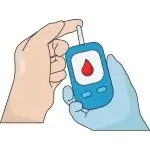
Endocrine Conditions
Some of the most common endocrine conditions that naturopaths help to treat include diabetes, thyroid dysfunction, and adrenal fatigue.

Cardiovascular Conditions
Naturopathic doctors provides holistic care and are able to help people with a wide range of cardiovascular conditions.

Autoimmune Disorders
An immune system condition is any condition that affects the immune system. This can include things like infections, autoimmune diseases, and allergies.

Rheumatologic and Musculoskeletal Conditions
Rheumatologic and musculoskeletal conditions are a type of medical problem that can cause pain, inflammation, and limited movement in the joints.
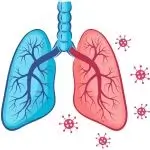
Respiratory System Conditions
A naturopathic doctor (ND) holistic approach that focuses on the whole person, rather than just the symptoms of the illness. Naturopaths believe that the body has an innate ability to heal itself.
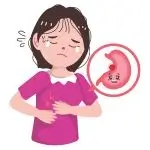
Gastrointestinal Conditions
A naturopathic doctor for gastrointestinal conditions typically uses a variety of natural therapies to help restore the health of the gastrointestinal tract.
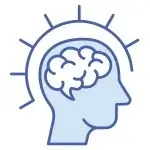
Neurology and Pain Management
Naturopathic doctors are trained in a variety of natural therapies which can be used to help treat neurological conditions. Some of these therapies include botanical medicine, homeopathy, and acupuncture.
If you liked this content and found it to be informative, please rate it.
